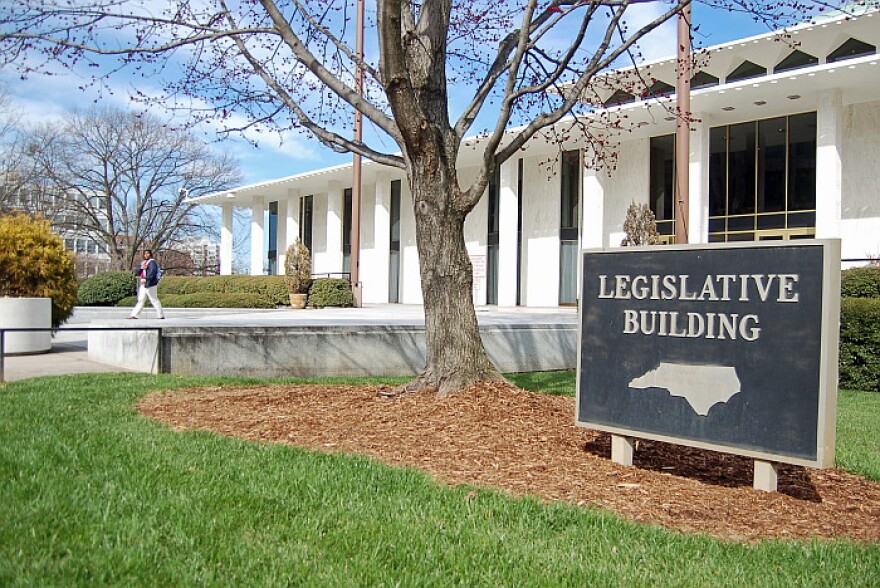Following a short break from the pomp of swearings-in, the North Carolina General Assembly returns to work in earnest Wednesday for a budget-writing session that traditionally lasts until early summer.
Exactly how long legislators will meet probably will depend on how well Democratic Gov. Roy Cooper and the Republican-controlled House and Senate can work together. Democratic gains in the November elections mean the GOP no longer has veto-proof control. The victories give Cooper and his allies more leverage in negotiating after Democrats have essentially been shut out since 2013.
STARTING UP AGAIN
The legislature convened its two-year session Jan. 9, but lawmakers met just one day to pick chamber leaders and organize. The three-week break gives legislators time to make committee assignments, move veteran lawmakers to bigger offices and hold campaign events. Starting Wednesday, lawmakers are severely limited in what kind of campaign contributions they can receive until this year's session ends. House and Senate members also can begin filing bills Wednesday.
REQUIRED JOBS
The General Assembly's most important duty is to pass a state government spending plan through mid-2021. The current budget law directs how $24 billion is spent through June 30 and contains significant directives on taxes and spending policies. State government has a slight surplus this fiscal year, which could make fashioning a budget easier. As required by the state constitution, Cooper will present his budget recommendations. The legislature also will invite Cooper to give the biennial State of the State speech this winter. The General Assembly also must elect 12 members to the University of North Carolina Board of Governors by April 1. Lawmakers likely have to confirm some Cooper appointments. There should also be bipartisan support for more Hurricane Florence recovery funds.
PRESSURE POINTS
Democrats have wanted to expand Medicaid through the 2010 federal health care law for years, but have lacked the votes to do it. Now Cooper and legislative allies seem ready to negotiate hard for expansion to cover hundreds of thousands of uninsured people. House and Senate Democrats plan to file expansion legislation Wednesday. Some House Republicans support a bill that would place a work requirement on enrollees, but Senate leader Phil Berger remains unconvinced that expansion is fiscally sound. On school construction, House Speaker Tim Moore and Cooper back a nearly $2 billion bond package that would go before voters next year, but Senate Republicans historically have been averse to more debt. And while school safety improvements remain a priority for both parties, Republicans won't go for gun restrictions pushed by Democrats. Details of teacher pay raises also will have to be negotiated.
WHEN WILL THEY GO HOME?
The General Assembly usually aims to adjourn by mid-July in odd-numbered years. Meeting that goal likely depends on how willing Republicans are to give some policy victories to Cooper in legislative compromises. With conservative Democrats dwindling in the legislature, House Republicans will be hard pressed to win over several Democrats necessary to override Cooper vetoes on any legislation, let alone the budget. But stubbornness from leaders of the two branches could extend the session well into the summer. If both sides can't agree on a budget by July 1, there's no threat of a government shutdown, however, because state law directs government to operate at the previous year's levels.







